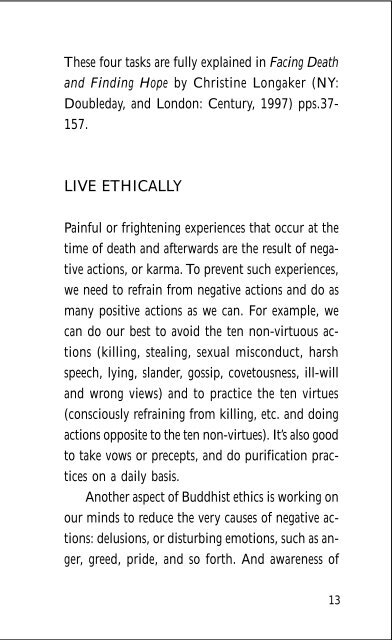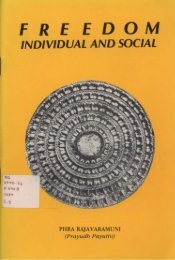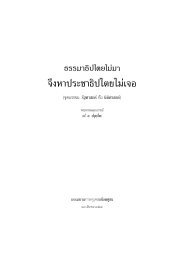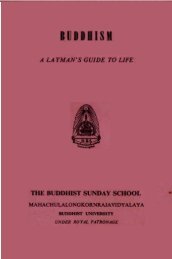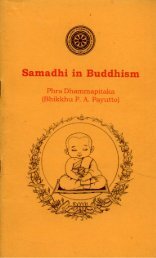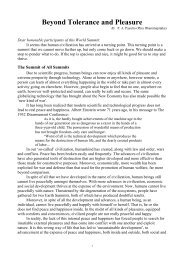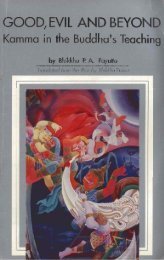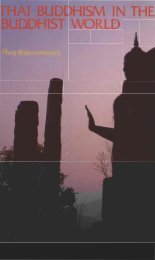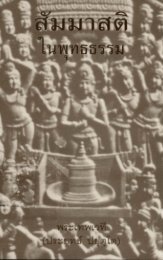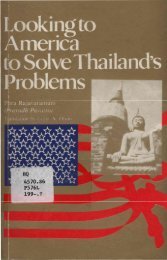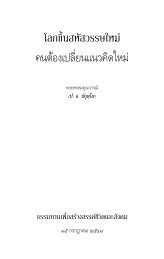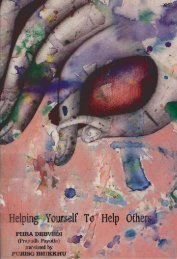Preparing for Death and Helping the Dying
Create successful ePaper yourself
Turn your PDF publications into a flip-book with our unique Google optimized e-Paper software.
These four tasks are fully explained in Facing <strong>Death</strong><br />
<strong>and</strong> Finding Hope by Christine Longaker (NY:<br />
Doubleday, <strong>and</strong> London: Century, 1997) pps.37-<br />
157.<br />
LIVE ETHICALLY<br />
Painful or frightening experiences that occur at <strong>the</strong><br />
time of death <strong>and</strong> afterwards are <strong>the</strong> result of negative<br />
actions, or karma. To prevent such experiences,<br />
we need to refrain from negative actions <strong>and</strong> do as<br />
many positive actions as we can. For example, we<br />
can do our best to avoid <strong>the</strong> ten non-virtuous actions<br />
(killing, stealing, sexual misconduct, harsh<br />
speech, lying, sl<strong>and</strong>er, gossip, covetousness, ill-will<br />
<strong>and</strong> wrong views) <strong>and</strong> to practice <strong>the</strong> ten virtues<br />
(consciously refraining from killing, etc. <strong>and</strong> doing<br />
actions opposite to <strong>the</strong> ten non-virtues). It’s also good<br />
to take vows or precepts, <strong>and</strong> do purification practices<br />
on a daily basis.<br />
Ano<strong>the</strong>r aspect of Buddhist ethics is working on<br />
our minds to reduce <strong>the</strong> very causes of negative actions:<br />
delusions, or disturbing emotions, such as anger,<br />
greed, pride, <strong>and</strong> so <strong>for</strong>th. And awareness of<br />
13


